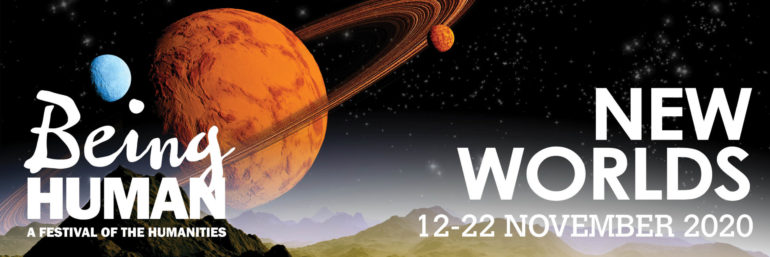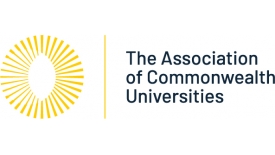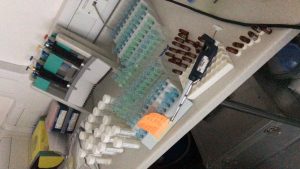
Being Human is the UK’s national festival of the humanities, led by the School of Advanced Study, University of London in partnership with the Arts & Humanities Research Council and the British Academy.
About the festival
Being Human is a national free festival geared towards public engagement with humanities research.
Every year the festival features around 300 events across the country, working with an average of around 80 universities and research organisations in 50 towns and cities.
The seventh annual festival is taking place on Thursday 12 – Sunday 22 November 2020.
This year’s festival theme is New Worlds. Echoing previous festival themes, ‘New Worlds’ conjures ideas about how discoveries, developments and research have changed the world around us. The aim of the festival is to take research in the humanities and share it in creative, fun and engaging ways with non-specialist audiences.
How to get involved
There are three main pathways to taking part in the festival:
1. Open Call: organise an activity that does not require funding from Being Human
Application deadline: Friday 12 June 2020, 5pm
2. Small Awards: apply to Being Human for funding of up to £2,000 to enable activities.
Application deadline: Friday 24 April 2020, 5pm
3. Hub Awards: apply for a larger institutional grant of £2,000- £5,000 to coordinate multiple activities as a festival Hub. (Only a small number of these awards are made every year).
Application deadline: Friday 24 April 2020, 5pm
More details about how to apply can be found here.
For more information please email beinghuman@sas.ac.uk
If you would like advice on developing ideas or submitting your application, please contact Adam Morris (Engagement Officer) publicengagement@bournemouth.ac.uk

























 REF Code of Practice consultation is open!
REF Code of Practice consultation is open! BU Leads AI-Driven Work Package in EU Horizon SUSHEAS Project
BU Leads AI-Driven Work Package in EU Horizon SUSHEAS Project Evidence Synthesis Centre open at Kathmandu University
Evidence Synthesis Centre open at Kathmandu University Expand Your Impact: Collaboration and Networking Workshops for Researchers
Expand Your Impact: Collaboration and Networking Workshops for Researchers ECR Funding Open Call: Research Culture & Community Grant – Apply now
ECR Funding Open Call: Research Culture & Community Grant – Apply now ECR Funding Open Call: Research Culture & Community Grant – Application Deadline Friday 12 December
ECR Funding Open Call: Research Culture & Community Grant – Application Deadline Friday 12 December MSCA Postdoctoral Fellowships 2025 Call
MSCA Postdoctoral Fellowships 2025 Call ERC Advanced Grant 2025 Webinar
ERC Advanced Grant 2025 Webinar Update on UKRO services
Update on UKRO services European research project exploring use of ‘virtual twins’ to better manage metabolic associated fatty liver disease
European research project exploring use of ‘virtual twins’ to better manage metabolic associated fatty liver disease